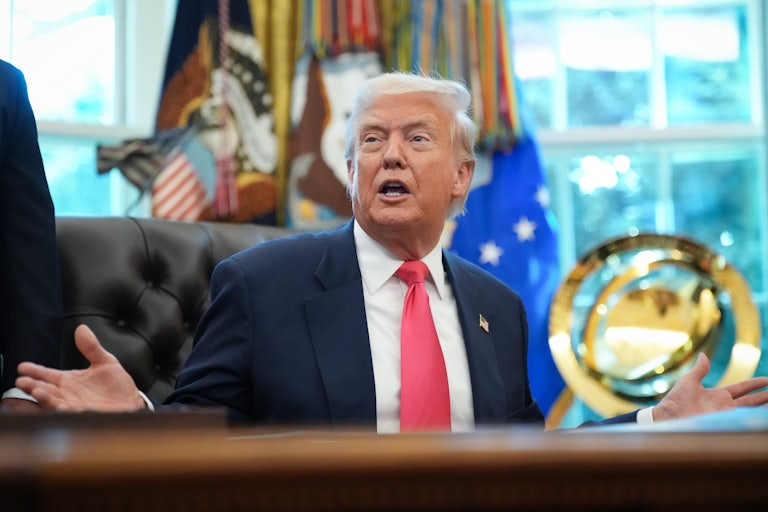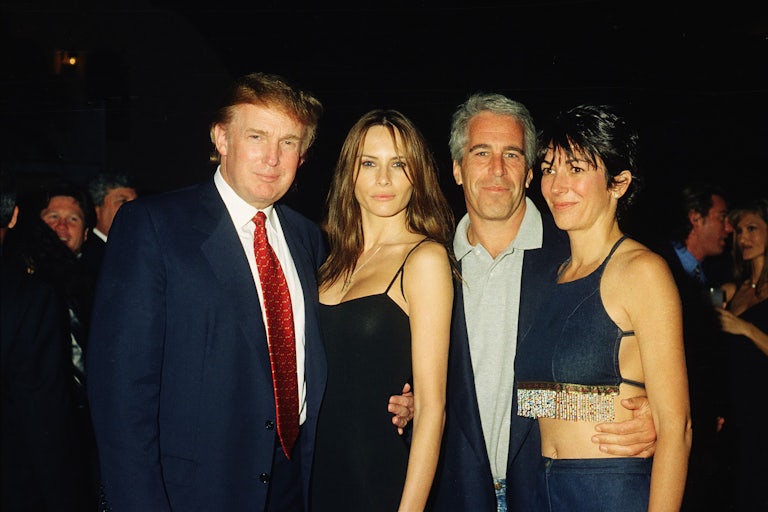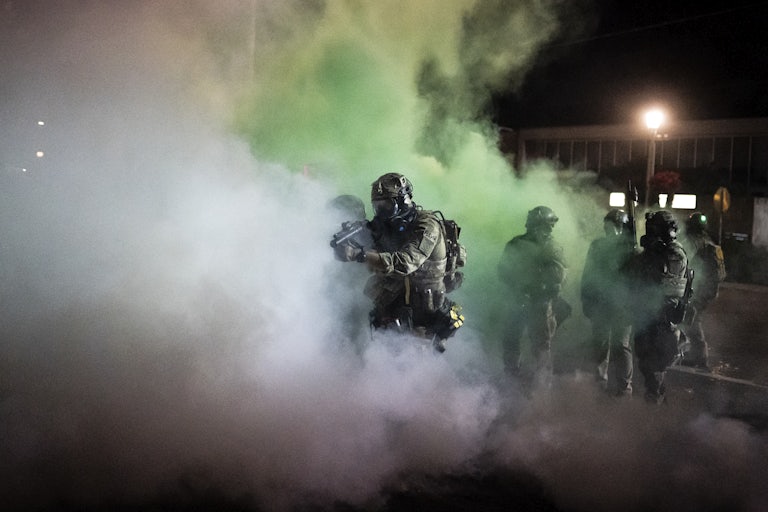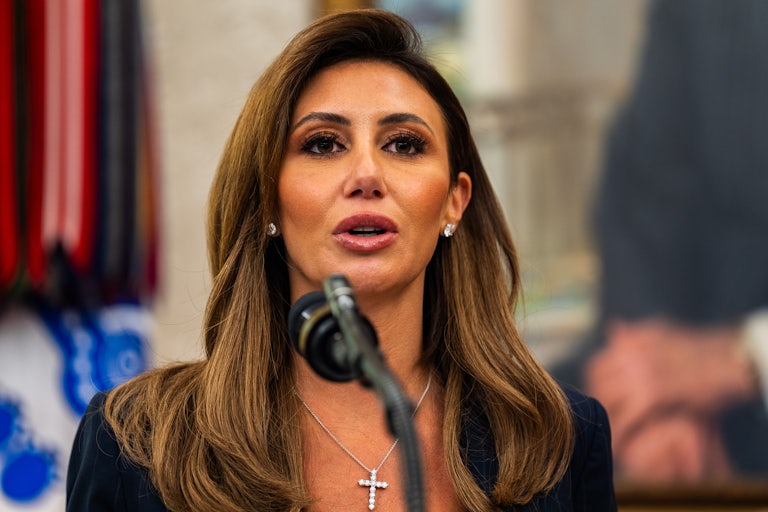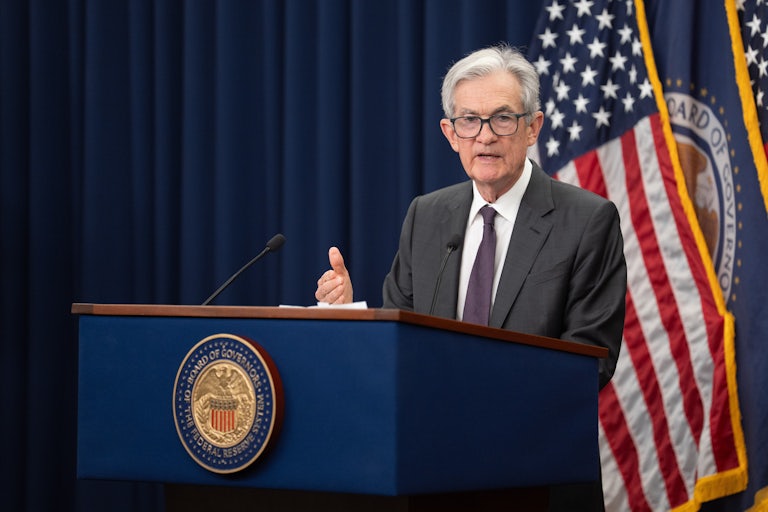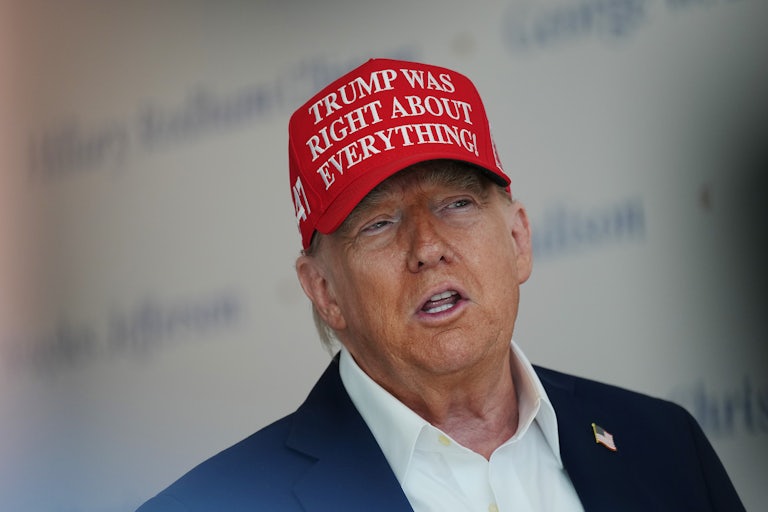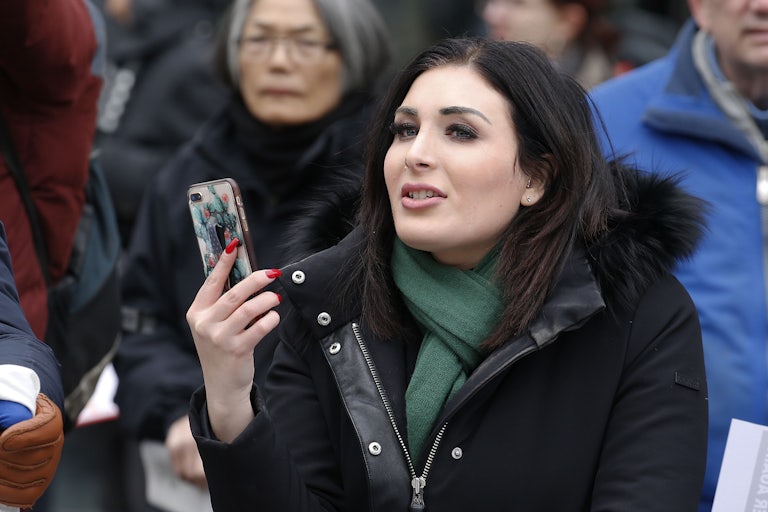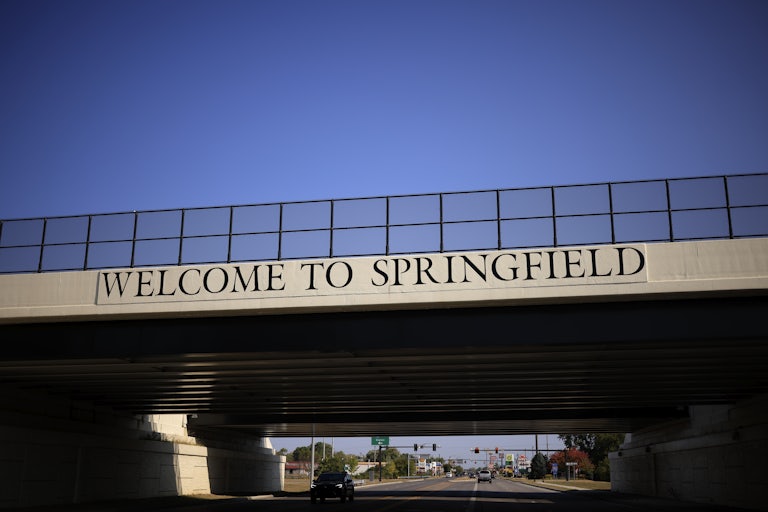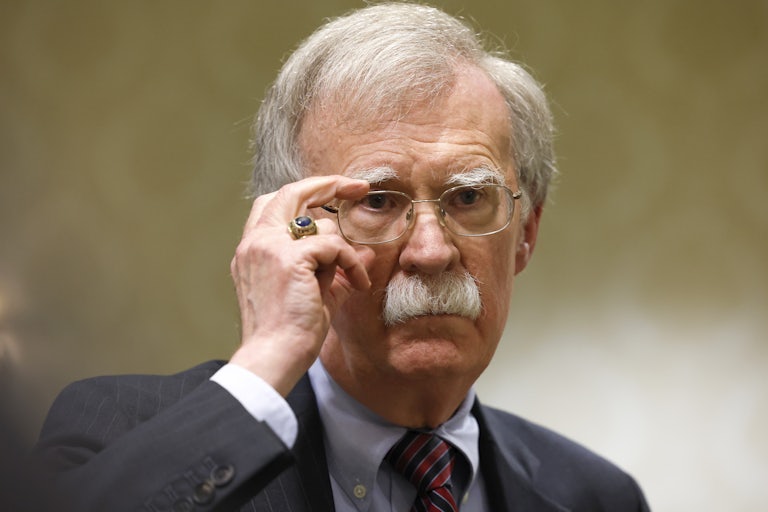Russia Bombed a U.S. Factory in Ukraine. Here’s How Trump Responded.
It’s not the way you would expect.
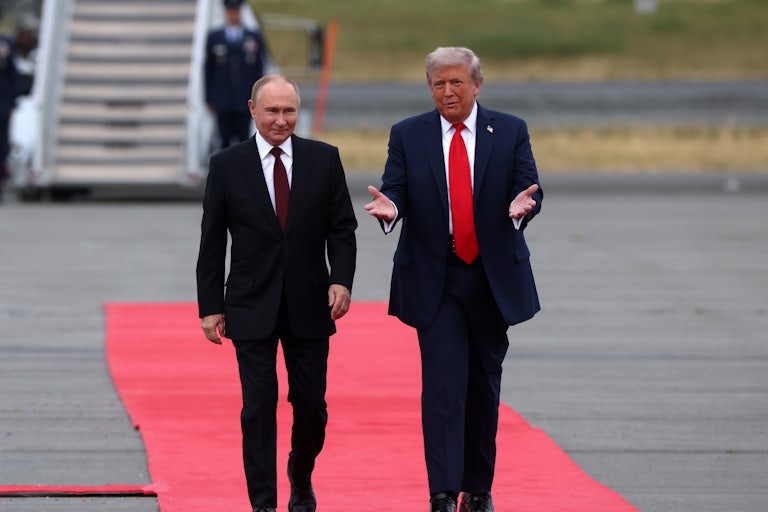
If another country were to bomb an American-owned factory on foreign soil, one might expect—at the very least—harsh condemnation from the sitting U.S. president.
The anticipated response from a president who enjoys a reputation as both a champion of American business and a tough guy on the world stage would be even fiercer.
But President Donald Trump fell far short of such expectations on Friday, when he was asked about Russia’s strike on the Ukrainian branch of the American electronics manufacturer Flex.
The president mustered only five words—and none very forceful.
“I told [Putin], ‘I’m not happy about it,’” the president said, before immediately changing the subject. “I’m not happy about anything having to do with that war.”
Overnight, Russia hit the factory with two missiles, injuring at least 15, according to Ukraine. About 600 workers had reportedly been at work but took cover prior to impact as air raid sirens sounded. An estimated third of the plant burned down, per the Ukrainian military.
In a statement on X, Ukrainian President Volodymyr Zelenskiy said Russia had “practically burned down an American company producing electronics—home appliances, nothing military. The Russians knew exactly where they lobbed the missiles. We believe this was a deliberate attack against American property and investments in Ukraine.”
Andy Hunter, the president of the Ukrainian affiliate of the U.S. Chamber of Commerce, described the strike as “not only an attack on Ukraine” but “an attack on American business,” which he said is being “destroy[ed] and humiliat[ed]” by Russia.
As Trump quickly changed the subject Friday, he resorted to his oft-repeated lie about having ended several wars during his second term. The president had previously said he ended six of them. Recently, he added a mysterious seventh conflict to that claim.
“I settled seven wars,” Trump continued Friday, before loosening the criteria for the tally in order to bolster the figure. “Actually, if you think about pre-wars, add three more, so it would be 10.”
